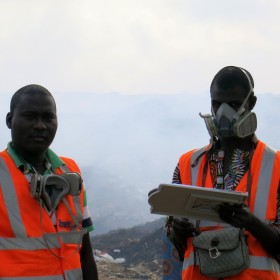The E-Waste Implementation Toolkit (EWIT) project – Horizon2020

“Extending the positive impacts of ICT projects, limiting hazardous materials derived from e-waste treatment, facilitating the creation of e-waste recycling systems at various degrees of the value chain, are amongst the most known activities of WorldLoop in Africa. In recognition of such high level expertise WorldLoop holds in the field of e-waste management in developing contexts, we considered it deserving a leading role in EWIT project, an Africa-Europe cooperation project funded under Horizon 2020 framework, whose core mission is contributing to develop and improve the current policies of e-waste management in various African contexts”.
Danilo Bonato, Remedia CEO EWIT Project Coordinator
WorldLoop, as part of a consortium led by the Italian take-back scheme Remedia, is an active contributor and expert to the E-Waste Implementation Toolkit (EWIT) project. The consortium, made up of a multi-stakeholder group from academia, NGOs and local authorities (municipalities) have been tasked with developing an e-waste implementation toolkit to support the recycling and the secondary raw material recovery strategies in metropolitan areas in Africa. EWIT is a 2-year project funded under the European Union’s Horizon 2020 Initiative, which stated early this year.
In particular, the EWIT project has broad ambitions to deliver a complete data mapping of African metropolitan areas on the management of electronic waste through the analysis of relevant experiences, processes and available legal instruments and to create a web portal of services to provide information, guidance and practical support for the design and development of smart e-waste collection and recycling system. The idea is to establish a platform to generate synergies between African and European municipalities and governments with regards to technology transfer and e-waste flows monitoring and control. The reliable data on e-waste generated will be collected in order to develop standards, benchmarks and best practices references to drive improvement in the collection, recycling and recovery of materials across Africa.
In addition, EWIT also aims to increase environmental and health protection, keep current jobs within the informal sector, while improving the productivity and working conditions of the employees. The project will also fuel the maximization of recycling opportunities to generate economic value and new jobs.
The toolkit will be developed on the back of a range of workshops focusing on knowledge exchange between cities, as well as financing, legislation, and closed-loop modelling. In the latter workshop, WorldLoop will take up the role as lead expert, while being a knowledge partner and participant in the other workshops on how municipalities could operationally deploy a Best-of-2-Worlds solution.

